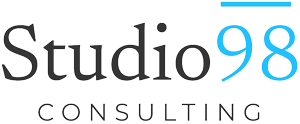In the whirlwind of running and managing a business, where complexities exist all around us, it’s tempting to rely on assumptions and surface-level observations. This can, however, be a recipe for disaster, often leading to missed opportunities, ineffective solutions, and ultimately contraction.
The key to unlocking the best possible outcomes begins with asking questions and looking enough to make sure you understand what is truly going on.
By habit, people will look for patterns and create narratives, leading them to jump to conclusions based on limited information. This can be particularly harmful in business, where nuances matter and hidden details can make the difference between success and failure. Instead of succumbing to the allure of easy answers, we must develop a questioning mindset that dives deeper into the heart of issues.
Effective questioning isn’t just about asking any question. It’s about asking the right questions, the ones that cut through layers of assumptions and expose the underlying truth. This requires a strategic approach and a willingness to challenge the “way things have always been done”.
Here are a few pointers that can help you uncover information that is not so obvious on the surface:
Open-Ended Inquiries
Instead of seeking confirmation of preconceived notions, formulate open-ended questions that encourage exploration and different perspectives. Phrases like “What factors are influencing this outcome?” or “What are the potential implications of this decision?” open a space for genuine conversation and the emergence of unexpected information.
Ask Question and Show Me
When you are asking questions like “How do we do ______” people will sometimes answer the question of how it gets done and other times will actually be answering the question, “How it should be done?”. It’s key to follow up the question with a show me response.
For example, in talking with your staff in the Project Management area. They will tell you, “All of ____ types of projects go on this project board.” You can respond with, “Great, so show me the board”. When you look you will see if they are all on there or not. When inspecting and digging further you can find that there will be times that that wasn’t done.
When asking why some of those projects are missing from the project board, you will hear things like “Oh, we just didn’t add the last couple, but normally we do..” etc. These would be indicators that it’s not always done this way.
In this case we refer our staff and clients back to the concept of One Truth. We must do it one way and not have exceptions to that.
Challenging the Status Quo
Don’t be afraid to question established processes, accepted norms, and even your own beliefs. A healthy dose of skepticism can be incredibly valuable in uncovering inefficiencies, uncovering opportunities for improvement, and getting to the bottom of the root cause of issues.
Listen for the Things You Don’t Want to Hear
When you are digging into problem areas, if someone is giving you honest answers/information, it is likely that you will hear the things that you don’t really want to hear. You are going to need to set aside your ego and realize that it is much better to get the true picture of the situation instead of the “fluff” version where someone is telling you what you want to hear.
By allowing yourself to listen in situations like this, you will get a better understanding of what is really going on and how you can help your people get the situations sorted out.
If you have any questions, or like to schedule a call with Claire, VP of Sales, click here

